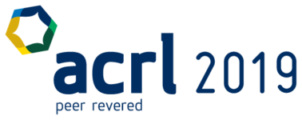Session Description:
Are you ready to reimagine a program or department in your library? Faced with budget cuts, staff reallocation, and institutional restructuring, we evaluated and re-envisioned our librarys 15-year-old Education & Outreach program. We solicited input from both within the library and across campus to help shape new directions for our program. We will share our experiences conducting a program evaluation including an environmental scan, survey, focus groups, interviews, and a staff retreat. Join us and become equipped to conduct your own timely, thoughtful, thorough, effective, and efficient program evaluation.
